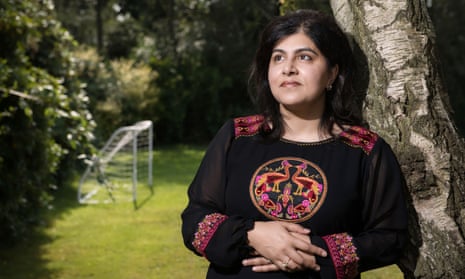Type “Muslim women” into Google Images and the most common photographs show a woman wearing a niqab staring out into the distance or straight into the camera. Some may see such images as a reaffirmation of their view that Muslim women are an orientalised “other”; that they are passive, homogeneous, and silent. However, I see a complete erasure of the identity of Muslim women, their work and their roles.
When I think of Muslim women, I think of Khadija, the prophet Muhammad’s wife and first convert to Islam, who was a successful merchant in her own right; of Fatima al-Fihri, who founded the oldest university in the world in Fez, Morocco; of historical women who make clear to me again and again that to be an educated, creative, interesting Muslim woman is nothing new.
This tradition continues in modern Britain, with Muslim women changing the world around them and contradicting the stereotypes that push down upon them, despite the multiple barriers they face for being women, for being Muslim and, for the majority, being BME; what a recent parliamentary report called a “triple penalty”. They are women such as Malia Bouattia, the first Muslim to be elected the national president of the National Union of Students; Fatima Manji, a journalist who has defied Islamophobes and racists who have questioned the integrity of her work because she is a Muslim woman in a headscarf; Baroness Warsi, the first Muslim woman to have a seat in the cabinet.
These women have achieved great things in the public eye in the teeth of stereotyping and disadvantage; stereotyping that led the former prime minister David Cameron to claim that Muslim women needed to learn English, despite the fact that so many are such active members of the societies in which they live, whether their English is a first or third language, broken or fluent. Many Muslim women are the backbones of their communities. They are the ones who encourage their children to reach for greater heights and provide comfort and company in a society that is constantly making it more difficult to be a Muslim. Indeed, many Muslim women are people who have sacrificed much themselves in order to provide a life of better opportunity for their children. They are diverse, intelligent, strong, funny and so much more. I see these women in my own life and they inspire me.
When I think of Muslim women I think of my friends, many of whom are in the first generation of their family to graduate from university. I think of Hareem Ghani, the first Muslim to become the national women’s officer at the NUS. I think of the women who helped raise me – of my own mother, who attended college and returned to work after taking time out to raise her children, and instilled in me and my younger sister and brother the importance of education, and the duty we have to be a force for good in whatever way we can.
When I search for “Muslim women”, a suggestion for another search pops up. It says “Muslim women without hijab”. People want to “see” Muslim women, but they want to see them on their own terms. Muslim women, particularly those who are visibly Muslim, as a result face the brunt of Islamophobia, with every Muslim woman I know having a story of at least one incident of being abused or insulted in public, and often more. The situation is getting worse, with reports of the ban on the burkini in France providing encouragement to those who believe that there is only one way to be a “free” woman. Mass media constantly try to force an identity on to Muslim women through images, headlines and films.
This climate of heightened prejudice and Islamophobia has at times made me fear for my safety, consider my ability to succeed, and even question if I am welcome in the country of my birth. But still, through the example of those women who came before me, the support of those who are with me, and the thought of those who will come after me, I and so many others will continue to live our lives as Muslim women in our own way.
